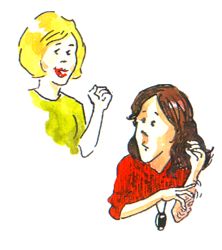Why is it important to avoid saying "stop scratching"?

For others to say "Stop scratching" and "Don't scratch" is reported as the commonest response that people with atopic eczema get when they scratch in the company of others. And no-one reports the advice helps to them stop, or even reduce scratching - if anything the frustration and irritation the advice causes leads to an increase in scratching. Another effect is for scratching to be continued in private, out of sight and earshot!
The attention given to scratching involved with this common and well-meant advice seems sometimes also to positively reinforce the behaviour, making its reoccurrence more likely. Any direct consequence of a behaviour can have this effect. In the youngest patients scratching can become an obvious attention-seeking behaviour.
The focus for changing scratching behaviour needs to be the introduction of new behaviours that are incompatible with scratching. This will lead to healing, such a positive consequence that the new behaviour is positively reinforced. Otherwise all non-scratching behaviour needs general encouragement and therefore reinforcement.
All undesirable behaviour, which therefore needs stopping, is simply counted for registration purposes, is regarded only in a neutral light, or is ignored - no special attention is given to it!
That is why we say DO DO, DON'T DON'T!
Saying "stop scratching" rarely works, and can lead to an increase in scratching. Negative advice needs replacing with positive advice - what to do instead: only positive behaviour should be given attention in order to achieve success with changing behaviour.
